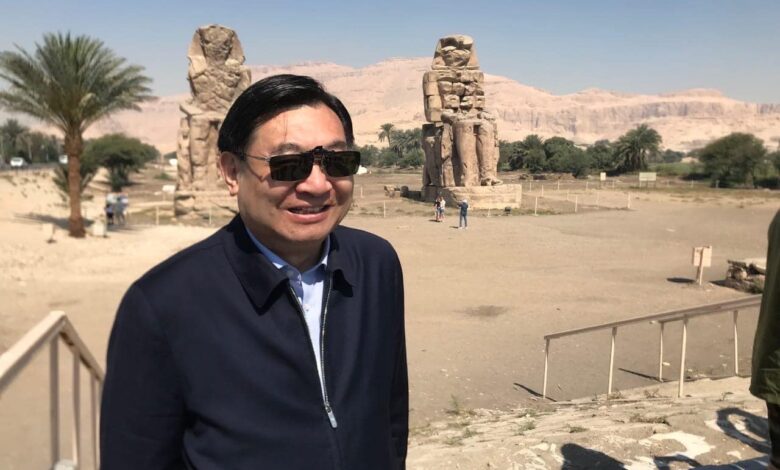
At the beginning of his official visit to Egypt, the Chinese Minister of Culture and Tourism Hu Heping, and his accompanying delegation eagerly toured Luxor Governorate to sample its sights and scenery.
They were received by the Secretary-General of the Supreme Council of Antiquities, Mostafa Waziri, who welcomed them and took them on an introductory tour across Luxor.
The tour included a visit to the Chinese mission working in the Temple of Montu in Karnak, the eastern and western banks, the Karnak temple, the Mortuary Temple of Hatshepsut, the Colossi of Memnon, the Valley of the Kings, the Tomb of Tut Ankh Amun, and the Valley of the Queens.
The tour also included the Luxor Temple, which witnessed a grand ceremony held in 2016 celebrating the 60th anniversary of Egyptian-Chinese relations.
Hu Heping’s schedule is set to include a series of official meetings with Egyptian officials to discuss means of cooperation between Egypt and China.
The visit also includes events including participation in a professional workshop that will be organized between Egyptian and Chinese tourism companies, hotel establishments and Chinese tour operators to talk ways to increase tourism exchange between both countries.
According to a MENA report, Finance Minister Mohamed Maait back in November praised Egyptian-Chinese ties as strong in various fields, especially in the economic domains, which have witnessed a remarkable development recently.
Speaking to MENA on the sidelines of launching the Egyptian-Chinese businessmen association, Maait said trade volume between Egypt and China hit $15 billion, noting that most of Egyptian exports to China are agricultural crops, semi-finished industrial commodities and engineering industries, as well as meat, processed meat, dairies, sea food, fruits, and oils.




